
How the SLK Framework Works:
Access the Full SLK Framework (With Materials!) Inside The Hub 👉
I’ve been wondering how helpful single-activities really are, especially when they don’t “teach” skills so much as enforce existing skills, or when I find my clients bored with the same activity! Add that to the fact materials can take forever to make and I don’t see tons of progress with my clients, I have been feeling so lost.
I think the idea of pathways makes PERFECT sense, it’s truly a brilliant concept! I love the idea of not struggling to plan last minute sessions where I’m not sure exactly what I’ll target or how I’ll do it.
I cannot wait to have clear goals (and a WAY to get to them!) in my head for my clients, especially the ones I’ve been in the dark about! I am so excited!
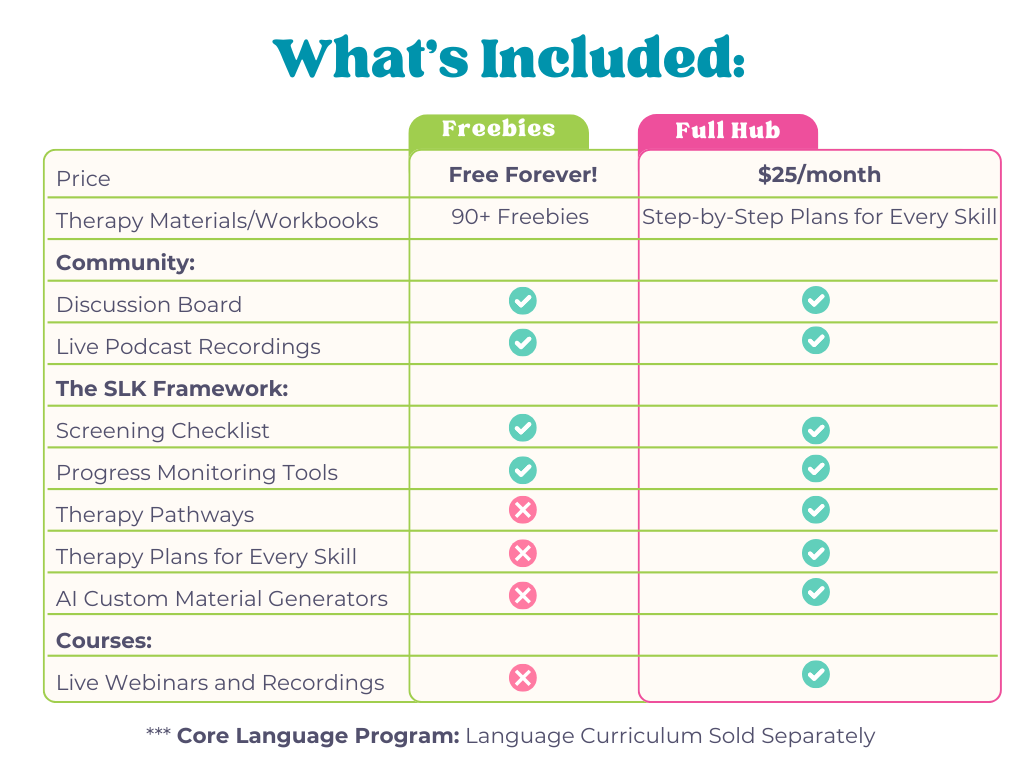
The Core Language Program
Explicitly teach all language skills from one grade level in 16 weeks! Help children get caught up in English/language arts and literacy skills with an easy-to-follow curriculum that is aligned to the K-5th grade curriculum.

About the Author: Carrie Clark, MA CCC-SLP
Hi, I’m Carrie! I’m a speech-language pathologist from Columbia, Missouri, USA. I have over 16 years experience working with children and teenagers of all ages in schools, preschools, and even my own private practice. I love digging through the research on speech and language topics and breaking it down into step-by-step plans for my followers.
Fun Fact: I love to declutter and organize but I’m TERRIBLE at keeping things organized! My brain loves taking on a challenge and coming up with amazing solutions to that problem (hence all of the great resources on this website!) so cleaning a room and helping it make sense is my jam! But the daily maintenance needed to keep a place tidy isn’t novel or challenging enough so I tend to procrastinate on those tasks that would help keep me there. Plus, I have two little creatures of chaos at home (my sons) who help make sure things DON’T stay tidy!
Connect with Me:


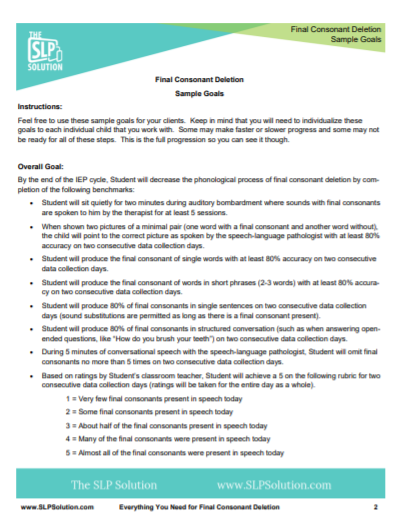
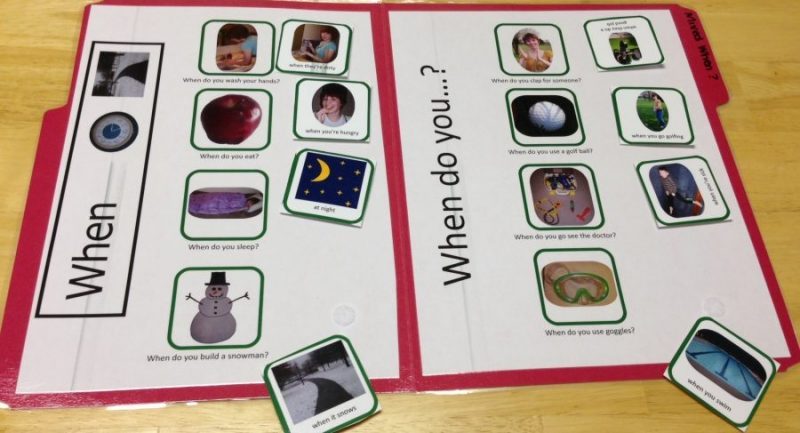
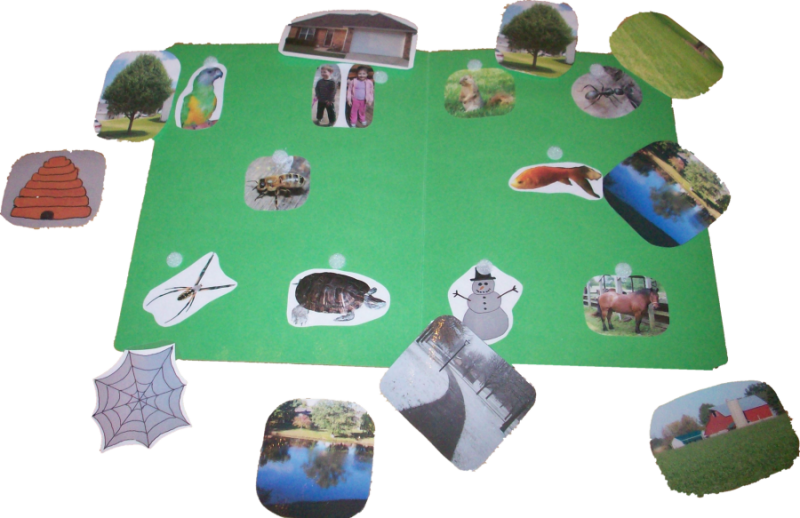
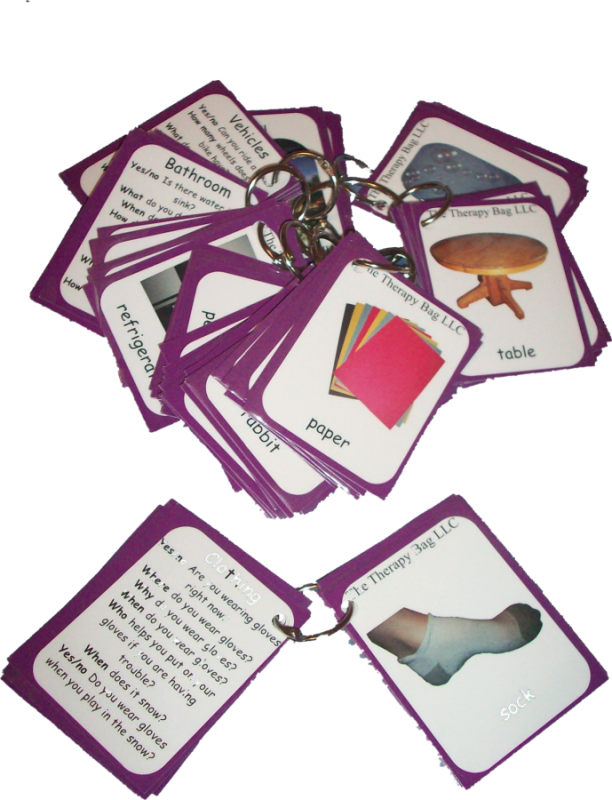
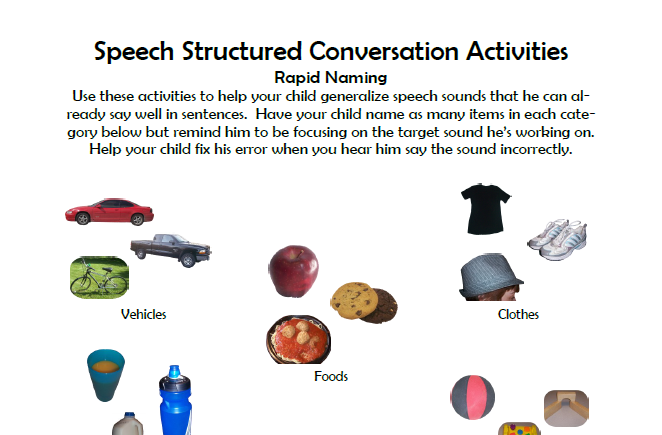
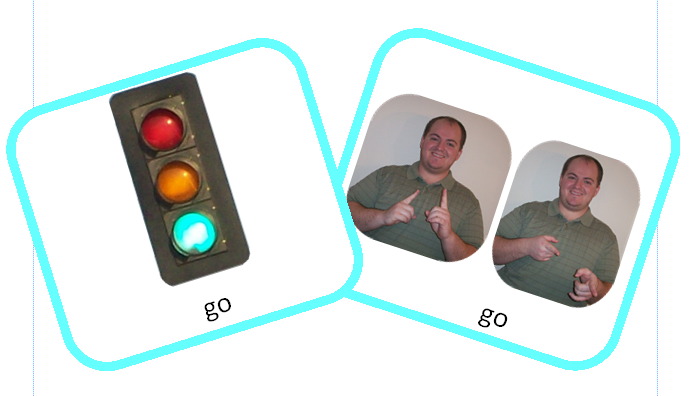
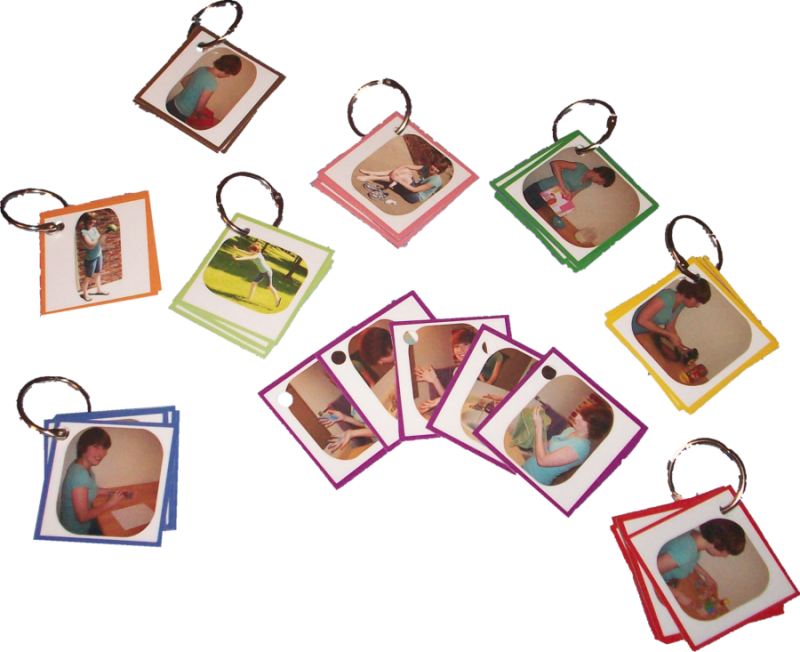

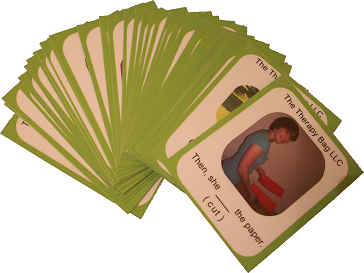
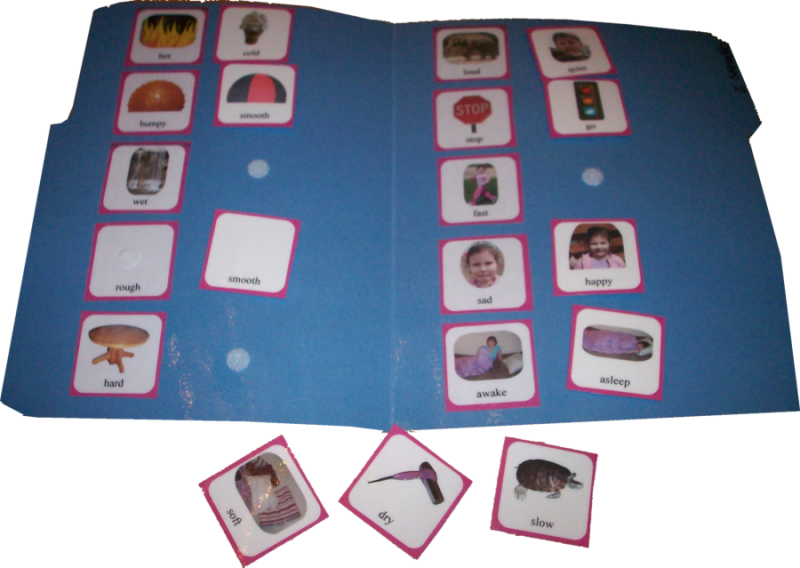

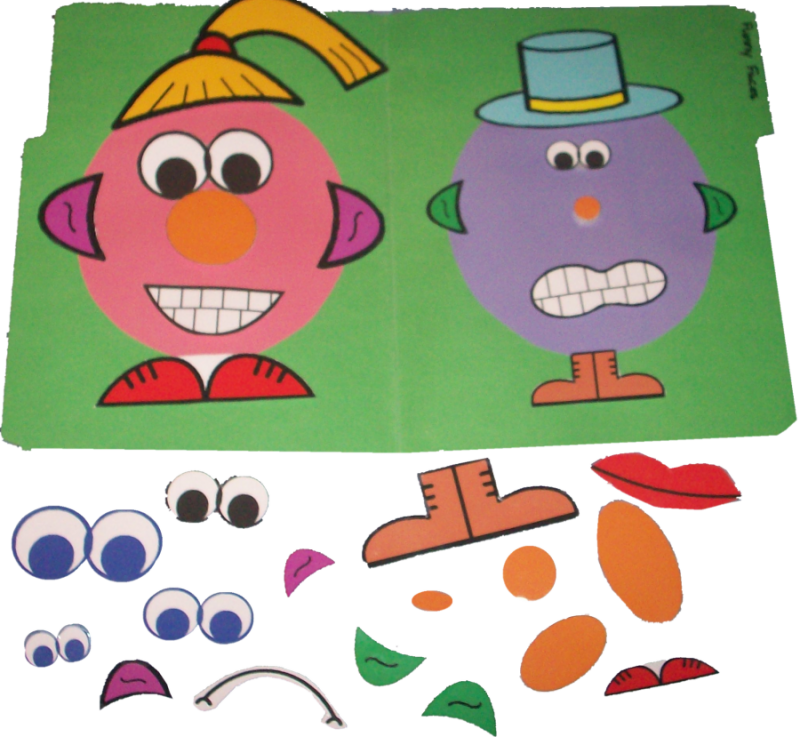
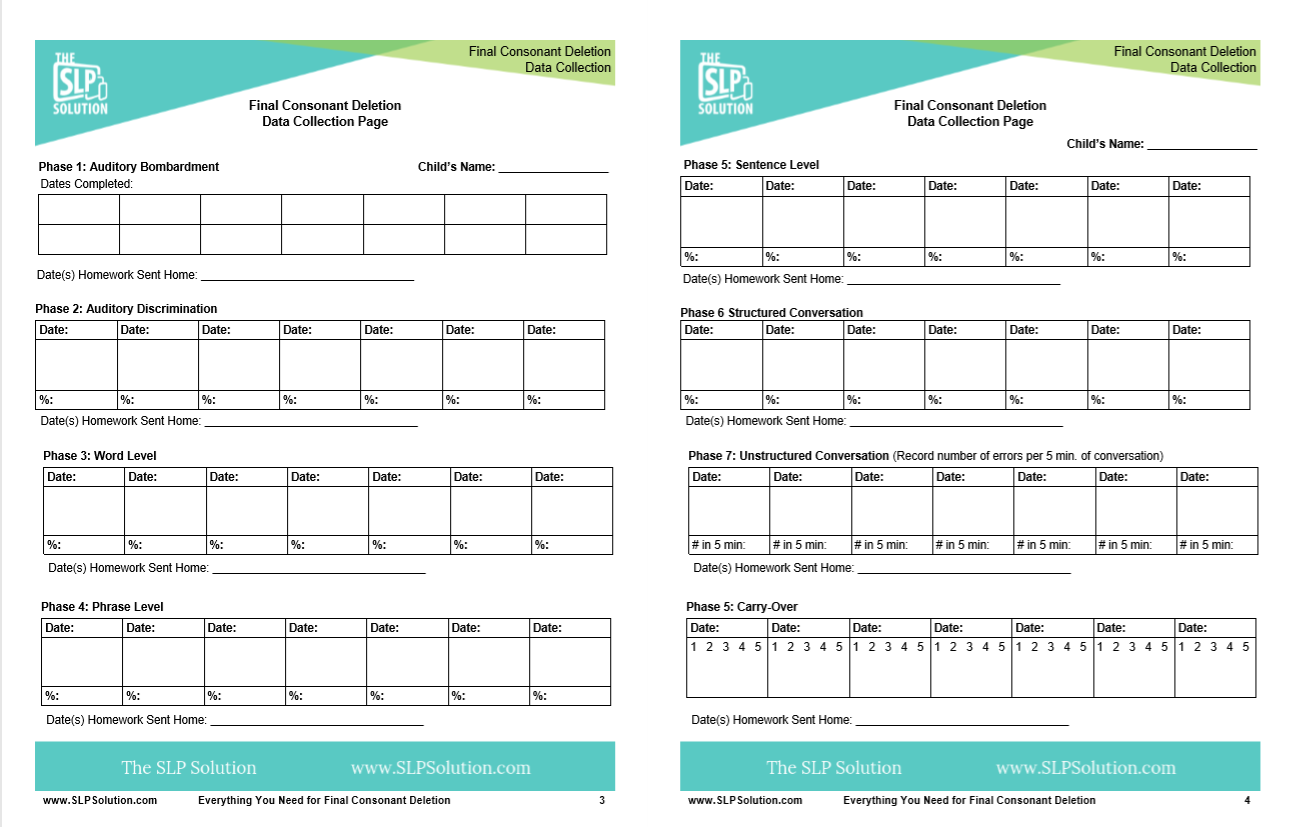
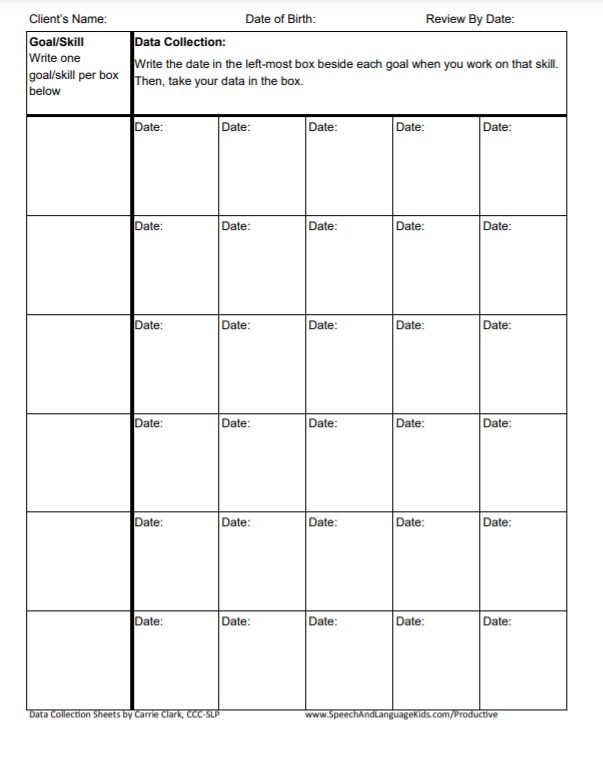
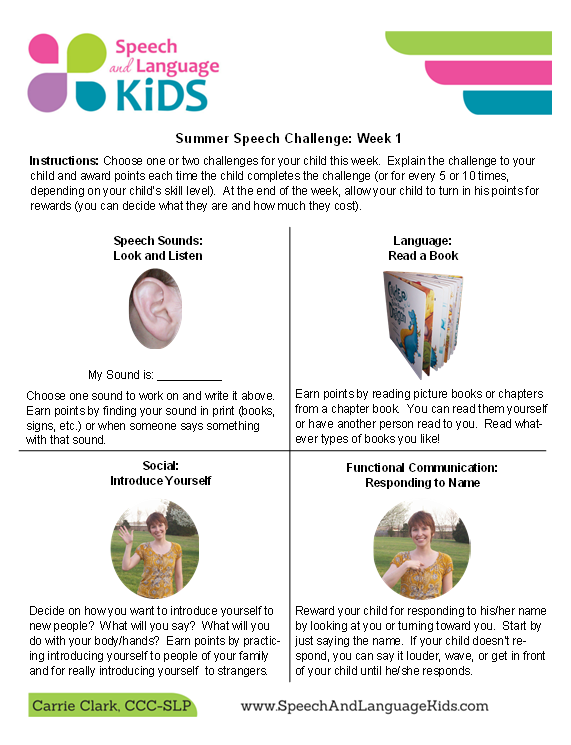
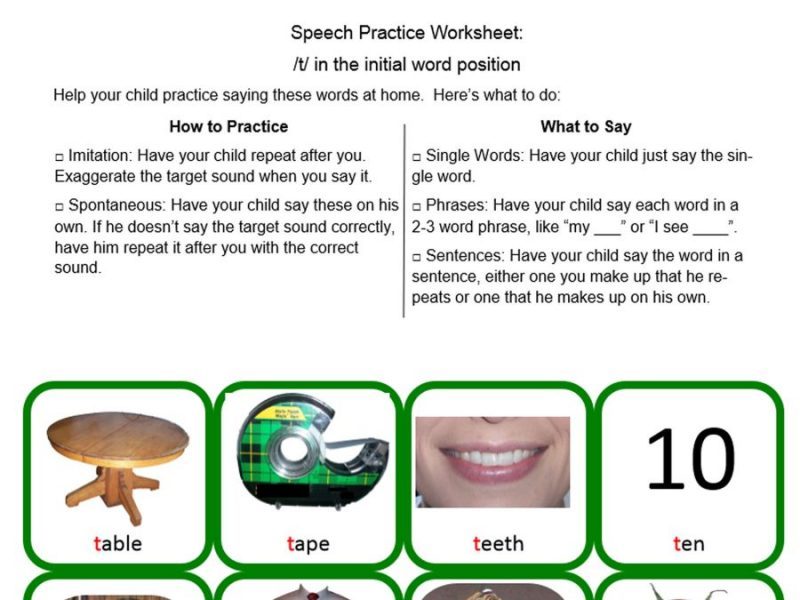
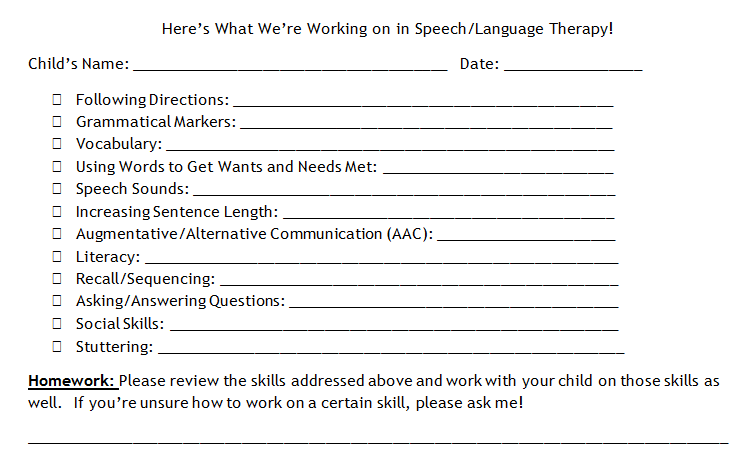
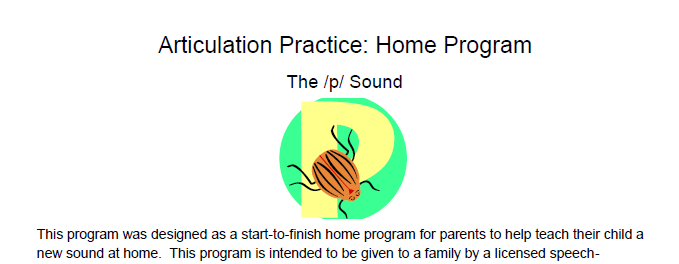
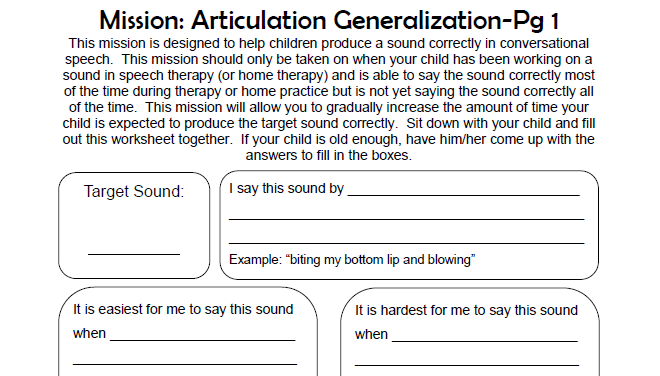
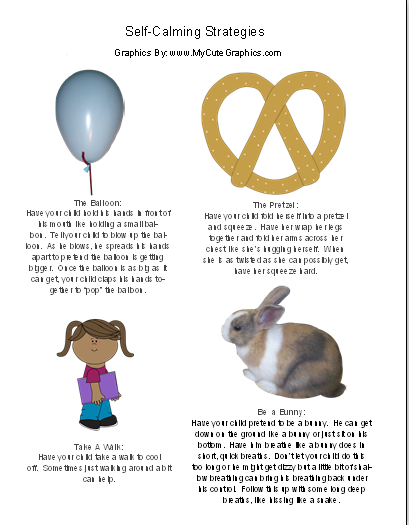
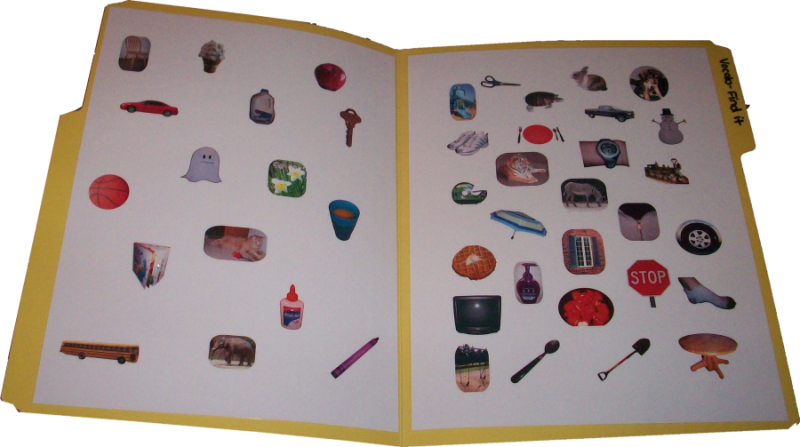
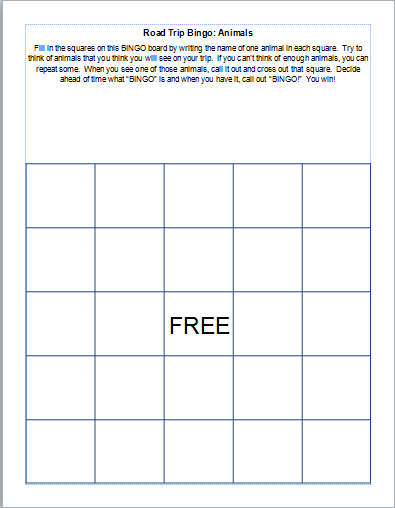
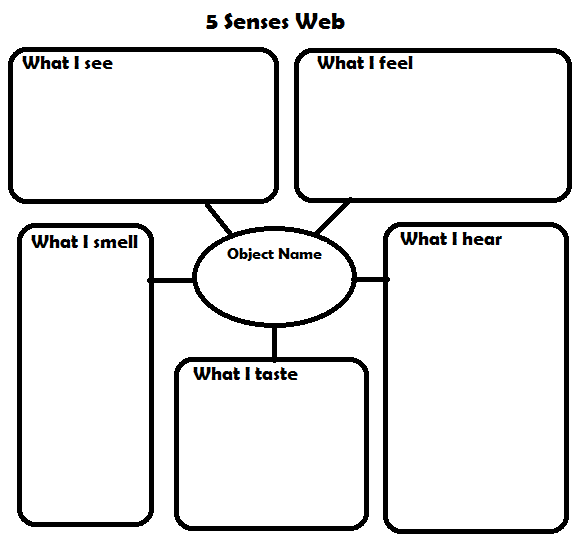
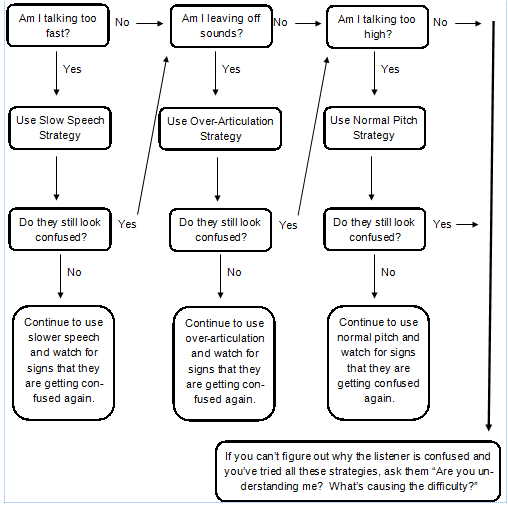
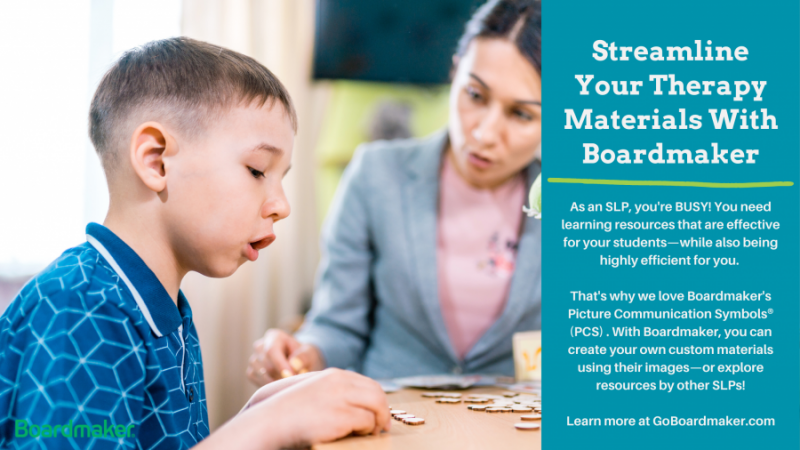

![2[1]](https://www.speechandlanguagekids.com/wp-content/uploads/2013/09/21.png)
![4[1]](https://www.speechandlanguagekids.com/wp-content/uploads/2015/04/41.png)
![5[1]](https://www.speechandlanguagekids.com/wp-content/uploads/2013/08/51.png)
![7[1]](https://www.speechandlanguagekids.com/wp-content/uploads/2015/11/71.png)
![8[1]](https://www.speechandlanguagekids.com/wp-content/uploads/2015/01/81.png)
![9[2]](https://www.speechandlanguagekids.com/wp-content/uploads/2013/03/92.png)
![10[1]](https://www.speechandlanguagekids.com/wp-content/uploads/2014/11/101.png)
![12[1]](https://www.speechandlanguagekids.com/wp-content/uploads/2016/06/121.png)

![14[1]](https://www.speechandlanguagekids.com/wp-content/uploads/2013/04/141.png)
![15[1]](https://www.speechandlanguagekids.com/wp-content/uploads/2014/07/151.png)
![18[1]](https://www.speechandlanguagekids.com/wp-content/uploads/2022/05/181.png)
![17[1]](https://www.speechandlanguagekids.com/wp-content/uploads/2014/10/171.png)
![16[1]](https://www.speechandlanguagekids.com/wp-content/uploads/2015/01/161.png)




